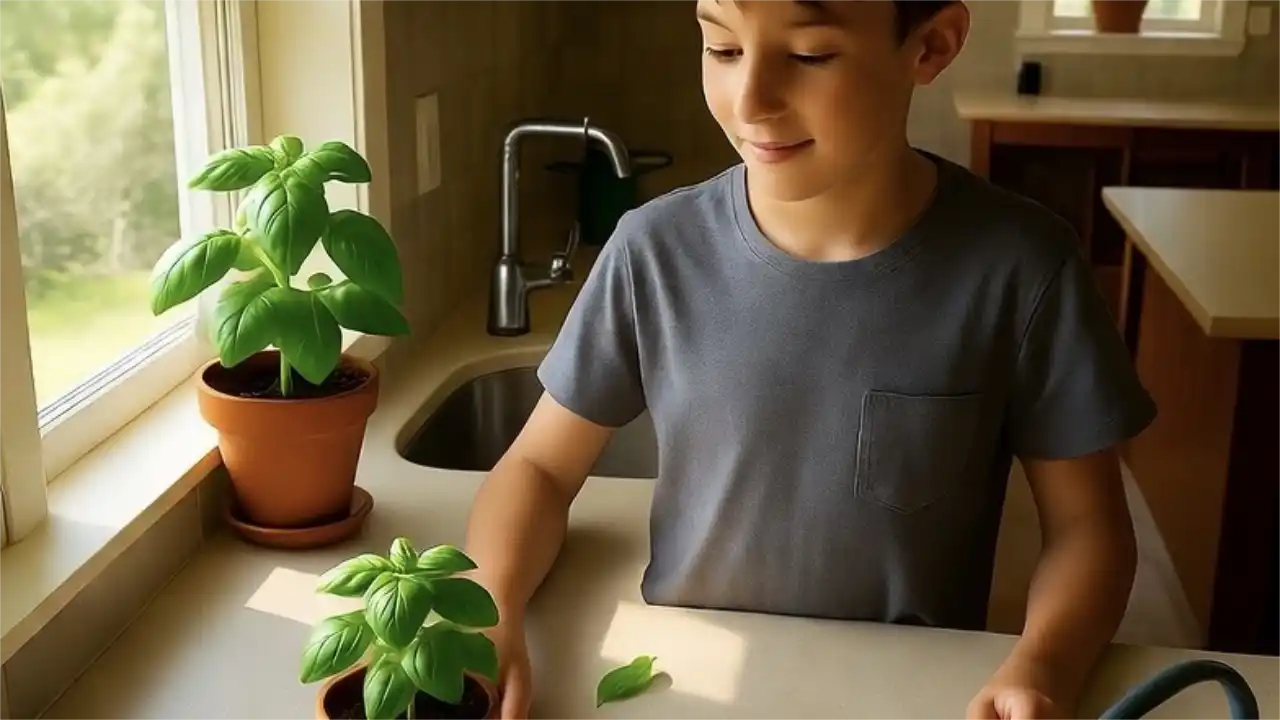
Making Learning Part of Daily Life: Grow Scientific Thinking with Plant Experiments
P
lant experiments offer a simple yet powerful way to explore biology, chemistry, and the scientific method. Whether you’re testing light exposure, soil types, or watering schedules, your child learns to observe, hypothesize, and track results over time. These projects also teach patience—plants don’t respond instantly—and foster a long view of learning. A question like, “What do you predict will happen?” sparks curiosity and builds a foundation for scientific reasoning.
One spring, we grew basil in three different spots: windowsill, porch, and shaded shelf. I asked my son, “Where do you think it will grow best?” He guessed the porch. Over weeks, he measured heights, noted leaf color, and kept track of watering. His predictions shifted as he watched, and when the windowsill plant thrived, he revised his theory. Later, he proudly presented his results to grandparents, complete with graphs. It wasn’t just about basil—it was about learning to notice, question, and test ideas.
To encourage this habit, try a seasonal planting experiment. Use a notebook to log setup, observations, and outcomes. Let your child guide the questions—light, soil, water, or spacing—and decide what to test. Revisit the results at family meals or share them with a school group. These projects grow more than plants: they nurture precision, patience, and the confidence to think like a scientist.
Making Learning Part of Daily Life

Making Learning Part of Daily Life: Reading as Daily Nourishment
Reading every day builds vocabulary, imagination, and emotional connection. Create routines that make books a joyful, comforting part of life.

Making Learning Part of Daily Life: Connect History and Math with Field Trips
Field trips make history and math feel alive. Explore places where ideas emerged to build curiosity, memory, and real understanding.

Making Learning Part of Daily Life: Teach Math and Reasoning Through Grocery Shopping
Turn grocery trips into math and reasoning lessons. Show children how numbers, choices, and planning work in everyday life.
Table of contents

Primordial Soup for the Mind: Navigation
Navigate the book Primordial Soup for the Mind.
TIPS
- Let it fail—mistakes teach more than wins.
- Ask, “What changed?” to keep them guessing.
- Change only one thing at a time.
- Suggest weekly experiment sessions.
ACTIVITIES
- Seed Test: Plant beans, change one thing (light, water), log what happens, 15 minutes.
- Sprout Swap: Guess why a plant grows weird, try a fix, compare results, 10 minutes.
EXAMPLE
My daughter’s beans drowned, but she learned to check soil—now she is our plant pro.

Download “Primordial Soup for the Mind: A Parent’s Guide to Nurturing Intellectual Growth”
Enter your information to get this article and hundreds more as part of the FREE book Primordial Soup for the Mind.
Share your thoughts with the Thought Academy community in the Comments section below.

Sharpen those skills!
Enter your information to get our FREE practice exercises so you can hone your critical thinking and reasoning skills!







0 Comments